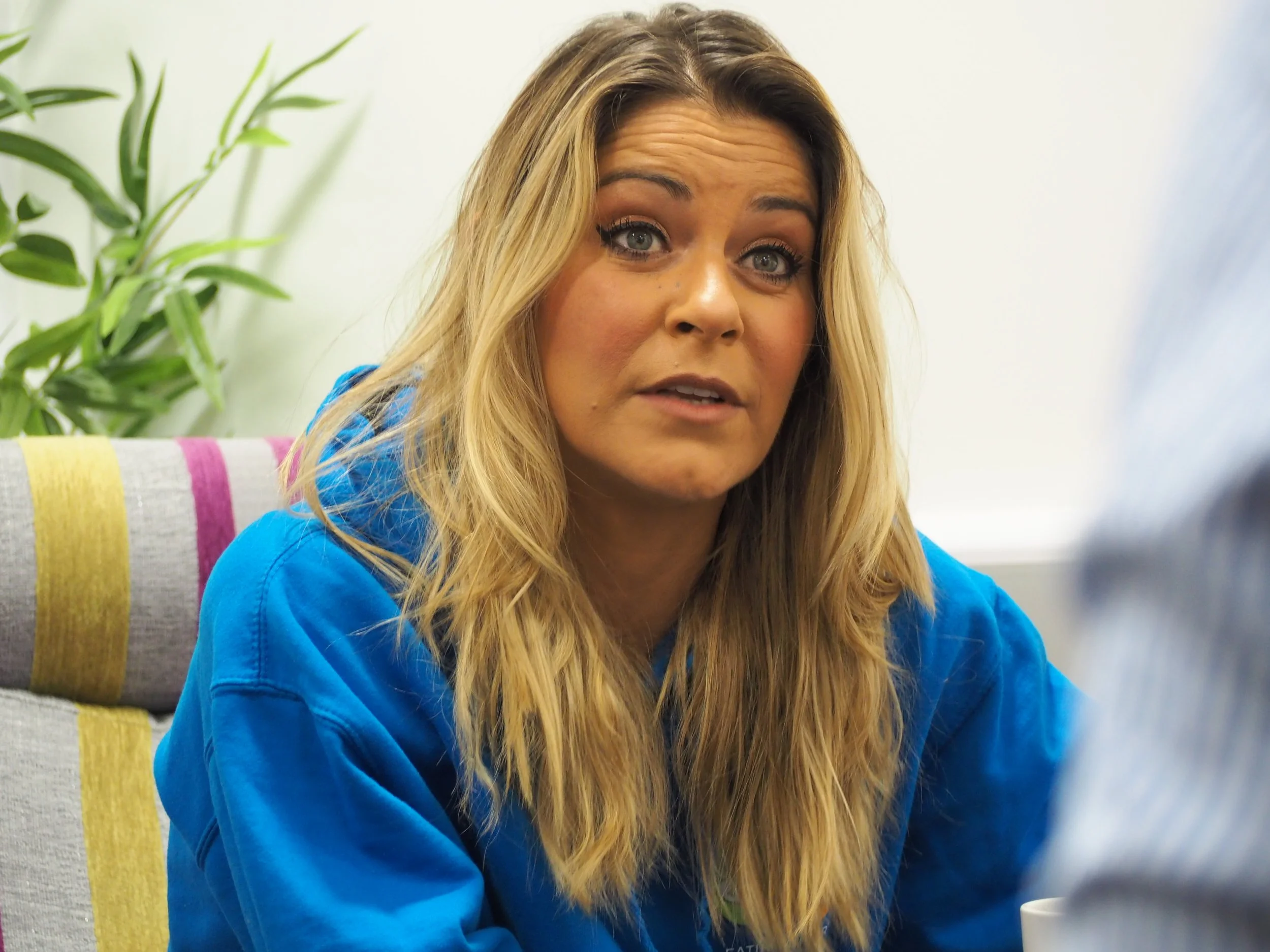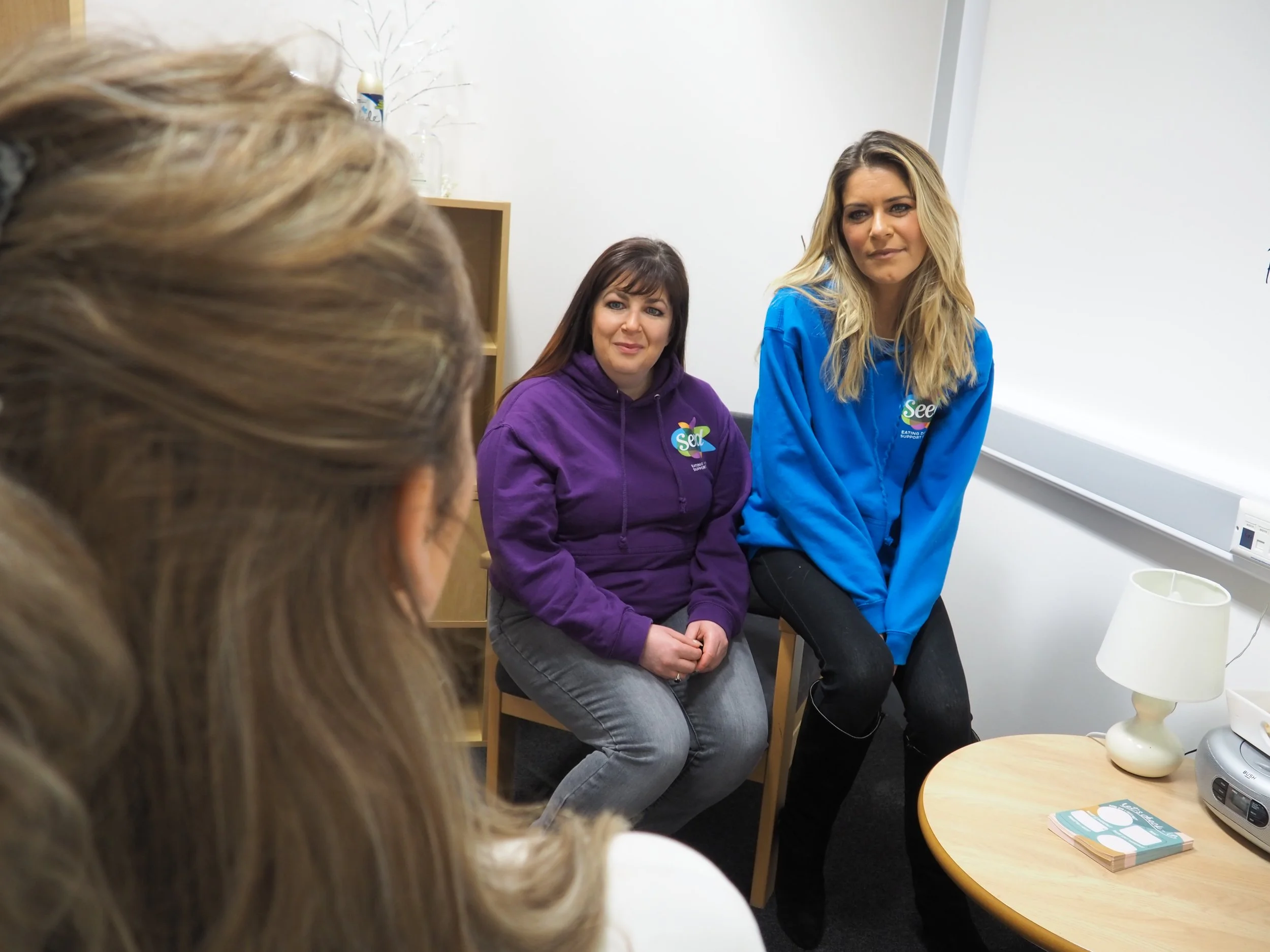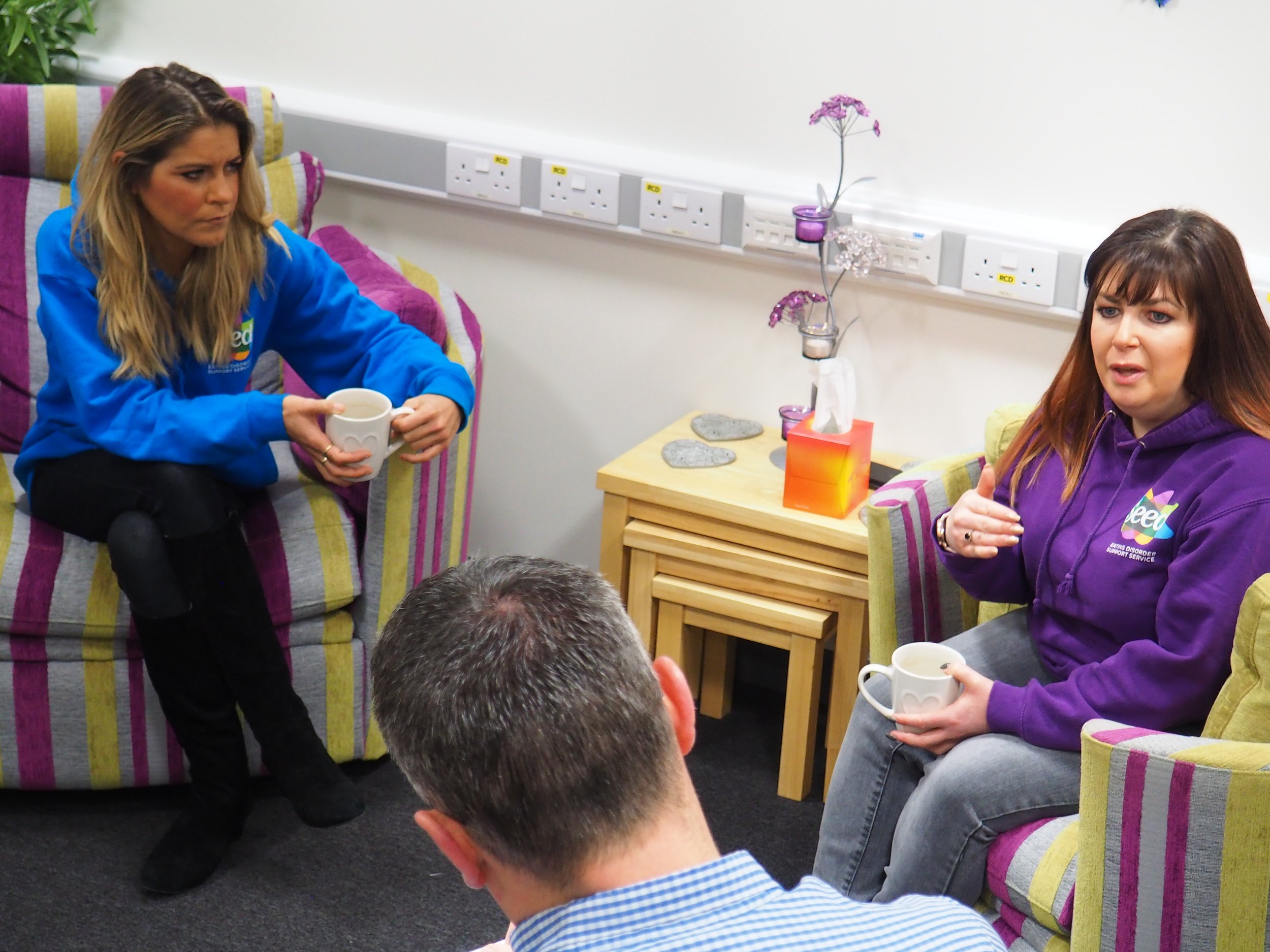‘So many people are struggling’: Gemma Oaten launches new eating disorder support project
SUPPORT: Gemma Oaten
Hull actress Gemma Oaten has launched a new eating disorder recovery programme as part of her SEED charity work. She spoke to Rick Lyon about why she believes it is so important
During the first lockdown, Gemma Oaten was struggling with her anxiety.
The actress, famed for roles in Emmerdale and Coronation Street, was living alone in a flat in south west London, away from her family back in Hull.
Like many charities, SEED (Support and Empathy for people with Eating Disorders), of which Gemma is Manager and Patron, was facing closure due to a lack of funding.
Gemma’s parents, Marg and Dennis Oaten, had formed SEED back in 2000 following Gemma’s own battle with an eating disorder from the age of 10, which almost killed her on four occasions over 13 years.
Lockdown also gave Gemma plenty of time to think. She thought about what she had missed out on because of her disorder, and how, even though she recovered, it had left a lasting impact on her and the person she now.
It struck her that, although support is available for people suffering from an eating disorder, there was nothing in place to address the long-term issues previous sufferers may still be dealing with.
“For me personally, my anxiety went sky high, particularly at the start of lockdown. I think it did for many people,” says Gemma.
“The experiences that I’d had in hospitals, in eating disorder units, in psychiatric units, but also the loss of years with my friends, the ramifications and repercussions of potentially not being able to have children, everything – it all hit me really hard.
“I spent a lot of my time on bed rest, institutionalised and isolated when I was younger. Then, living on my own in a flat in London during lockdown, it brought up a lot of stuff.
“Even though I feel like I’ve recovered in terms of how I deal with situations, what I hadn’t acknowledged was that, from the age of 24, when I started to recover and live, I then had to figure out who I was and how to live in the real world.
HERE TO HELP: Gemma Oaten, far right, and Debbie Thomson, Service Manager at SEED, providing support
“I went to drama school when I was 26 and Mum had to write me a 50-page life booklet because I just didn’t know how to live.
“Then, when I was trying to raise the profile of SEED during lockdown, I was speaking to more and more people about their recovery journeys and it quickly dawned on me that there is a recovery after the recovery.
“There are so many people out there who are struggling and need support.”
Now, Gemma and the team at SEED have launched the ‘Recovery After the Recovery’ programme.
The six-month programme, initially for people aged 11-25 living in Hull or the East Riding who are in recovery from an eating disorder or are experiencing disordered eating, aims to provide the support Gemma didn’t get.
Through a combination of workshops, one-to-one sessions and practical resources, the programme will address issues including anxiety management, coping strategies, self-esteem, assertiveness, relapse prevention and independent growth.
It was launched this week, to coincide with national Eating Disorder Awareness Week.
“It’s about trying to help people who’ve had an eating disorder to live their lives in the real world,” says Gemma.
“The pandemic has made that even more difficult, so it might be about achieving what other people would think of as relatively small goals. These might include making a new friend, or going to school four days a week instead of one, or getting a job – this is what the recovery plan is there to help facilitate.
“Here at SEED, we treat the person, not the disorder. There isn’t a quick fix and it’s about making sure people get the time and care they deserve with a really holistic approach.
PROGRAMME: Gemma Oaten and Debbie Thomson talking to The Hull Story
“Most people who have an eating disorder don’t know what their identity is. They need help to discover it. So, we’re looking at all areas and what people need to have a better quality of life.
“We’re hoping we can capture these young people at the right time and help them develop coping strategies, so their issues don’t spiral, with them ending up in an in-patient room.
“We want these young people to know they matter. We’re going to let them know there are people who really, really, really care about them not just surviving, but making sure they thrive.”
The programme, which is being funded by the Hull and East Riding of Yorkshire Clinical Commissioning Groups (CCGs), is being delivered at locations in Hull, Beverley and Goole.
Workshops will include sessions with guest speakers, including Gemma, and participants will be provided with a range of resources and activities.
It is hoped the programme, through preventing cases escalating, will also help ease the strain on NHS resources.
Debbie Thomson, Service Manager at SEED, says it is important the programme is delivered in a way that suits different individuals.
“We’re delivering six months of support to each individual. We’ll still be here after six months, but we’ll have planted a seed they can use to help them cope,” she says.
“We’ll encourage group work, as we recognise the importance of peer support, particularly among young people. However, we know that isn’t for everyone, so we’ll also be offering one-to-one support as well.
“There will be contact at least once a week as we want these young people to know that we’re here for them.”
An individual who believes they need support and fit the criteria, or a health professional or parent / carer can complete a referral to the Recovery After the Recovery programme by downloading a form on the SEED website here. Completed forms should then be emailed to RATR@seed.charity.
Gemma and Debbie were speaking to The Hull Story at the SEED Resource Room at Wilberforce Health Centre, in Hull, which is under threat because of funding cuts. To support the campaign to save it, click here.



